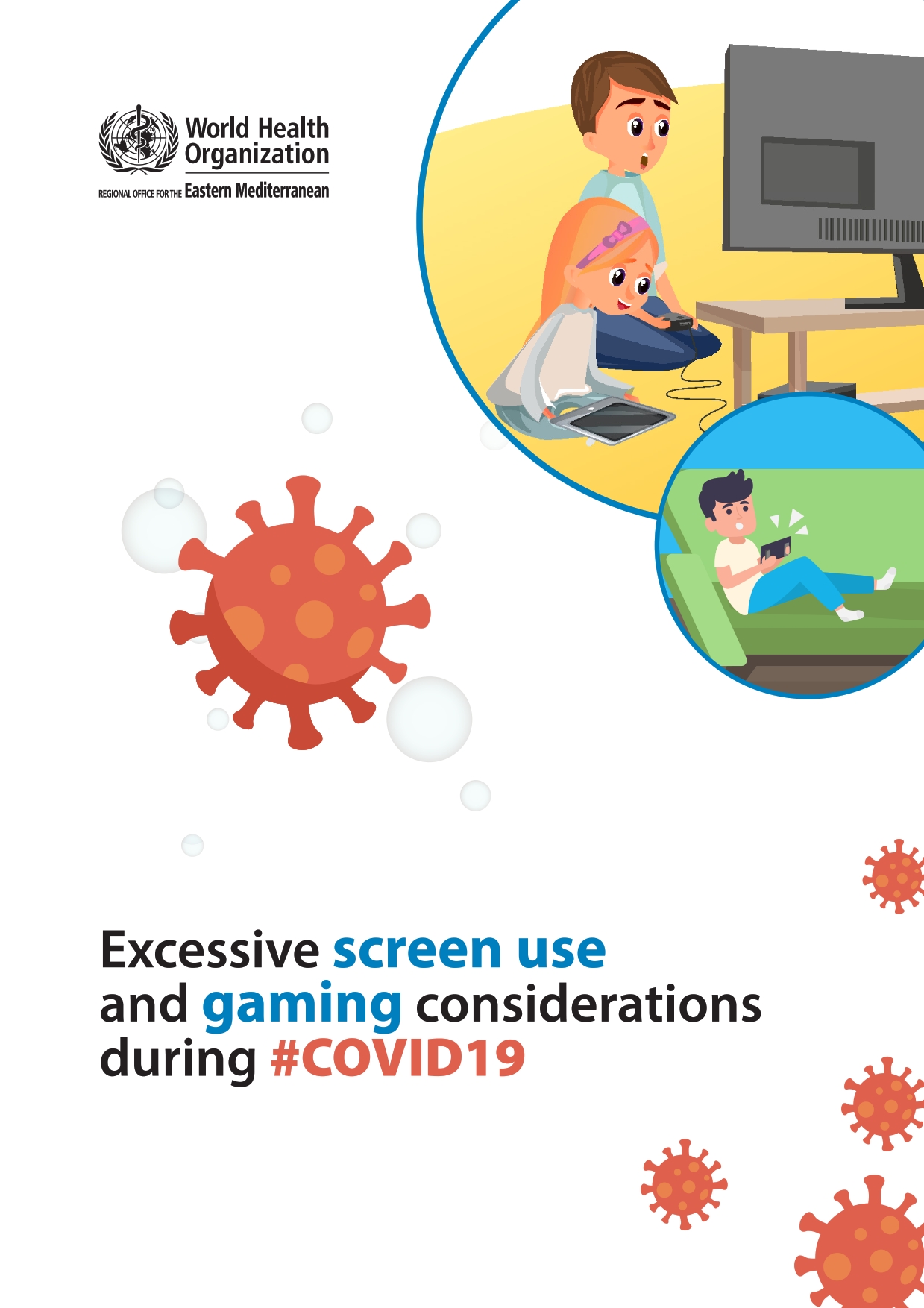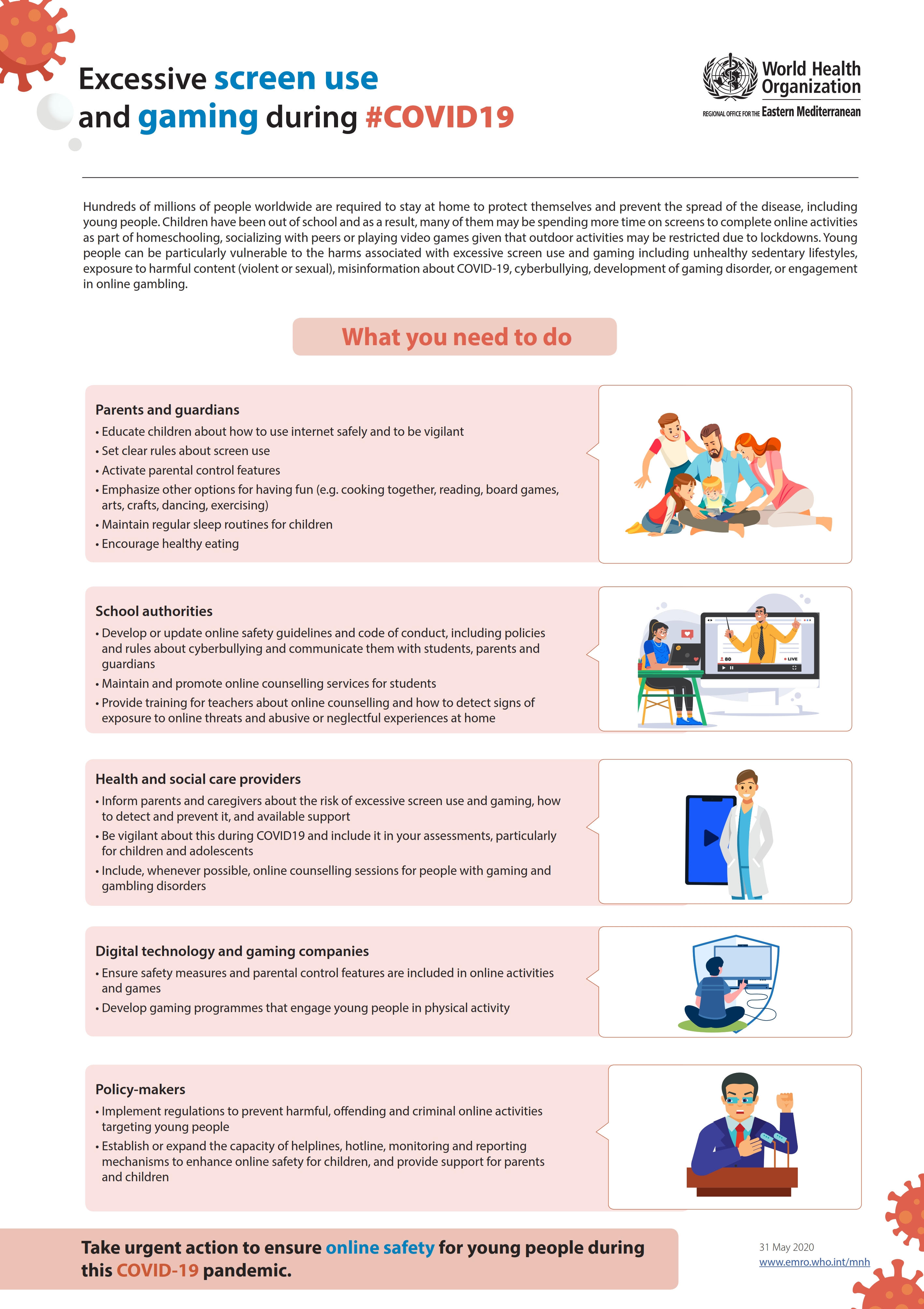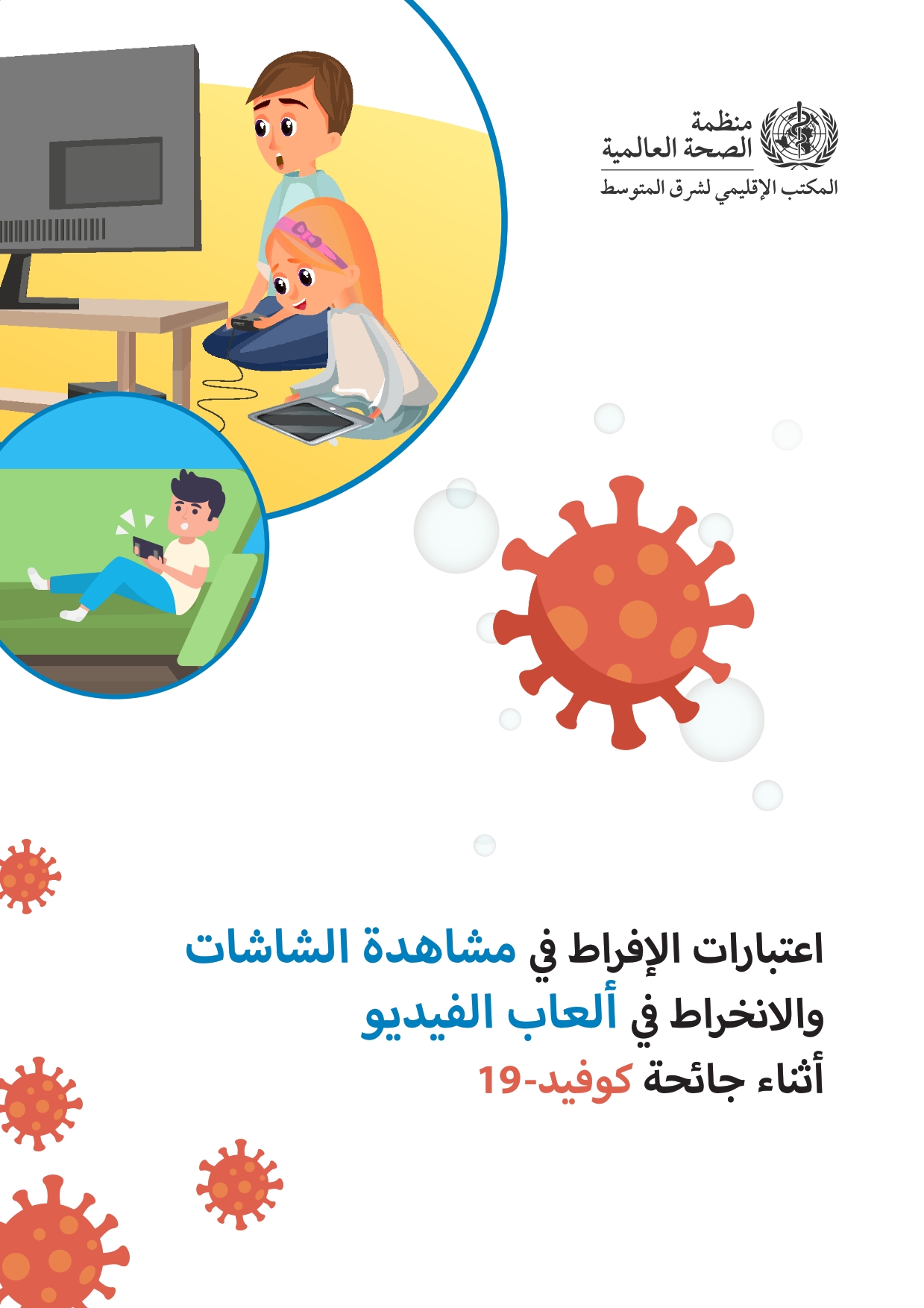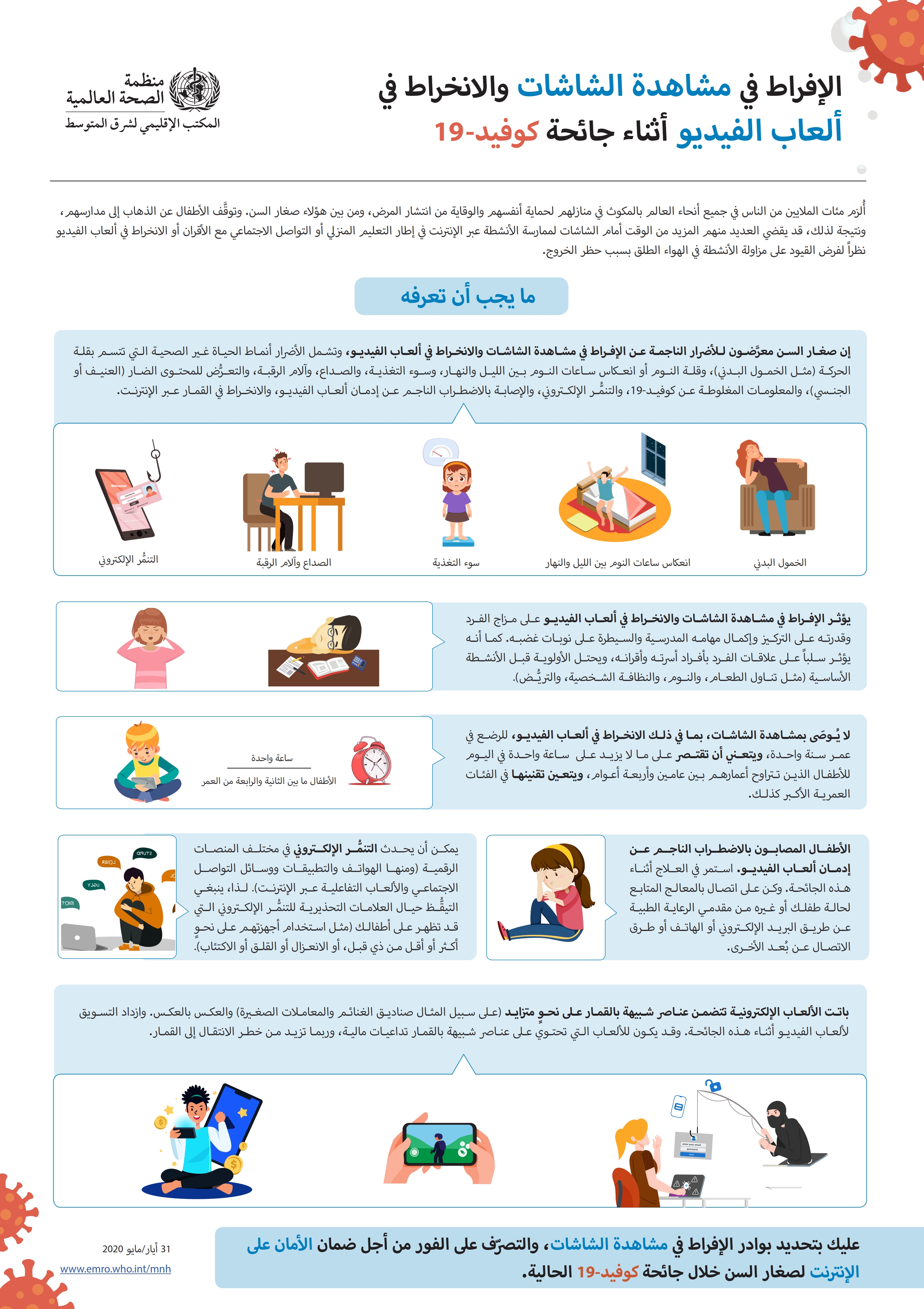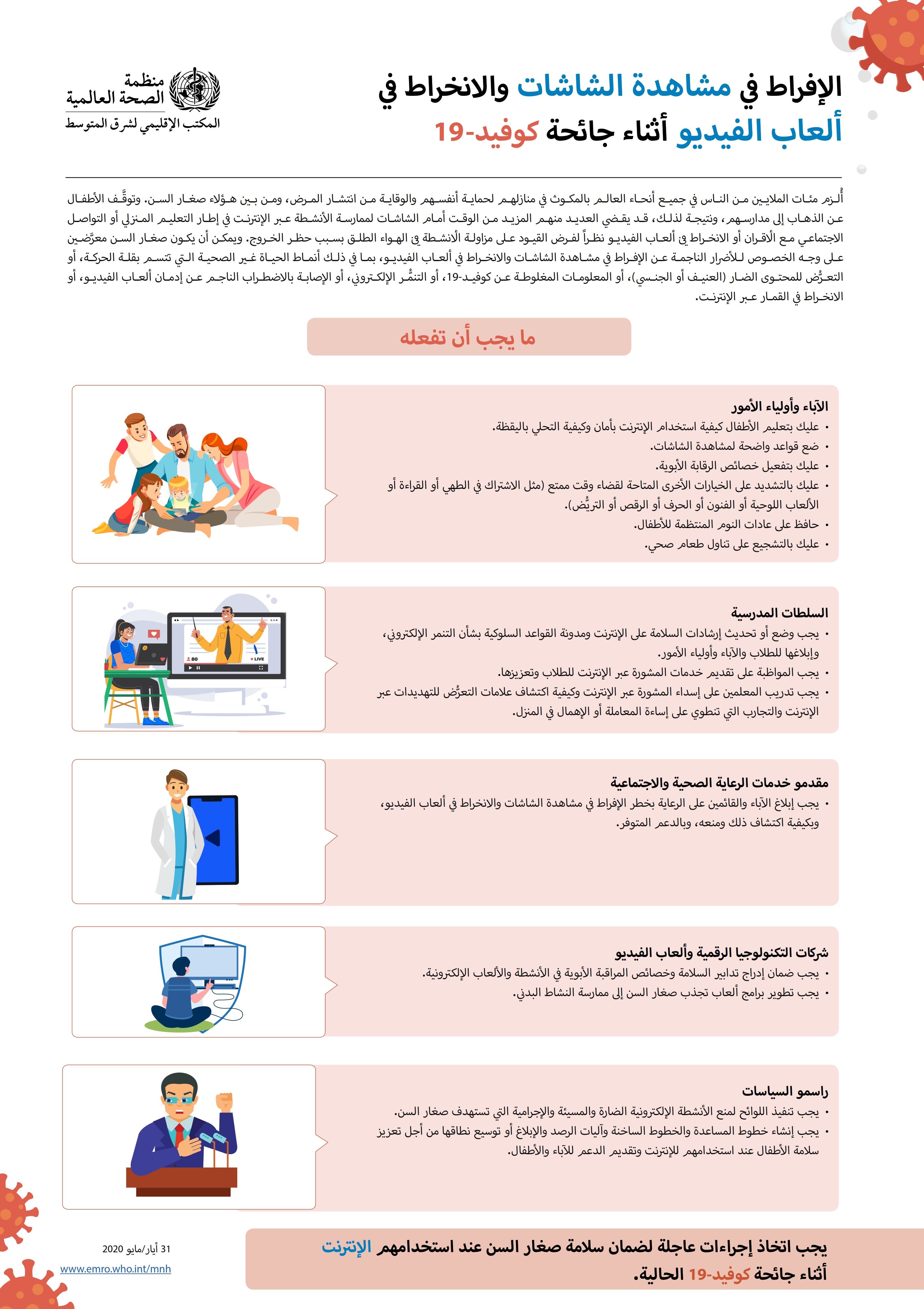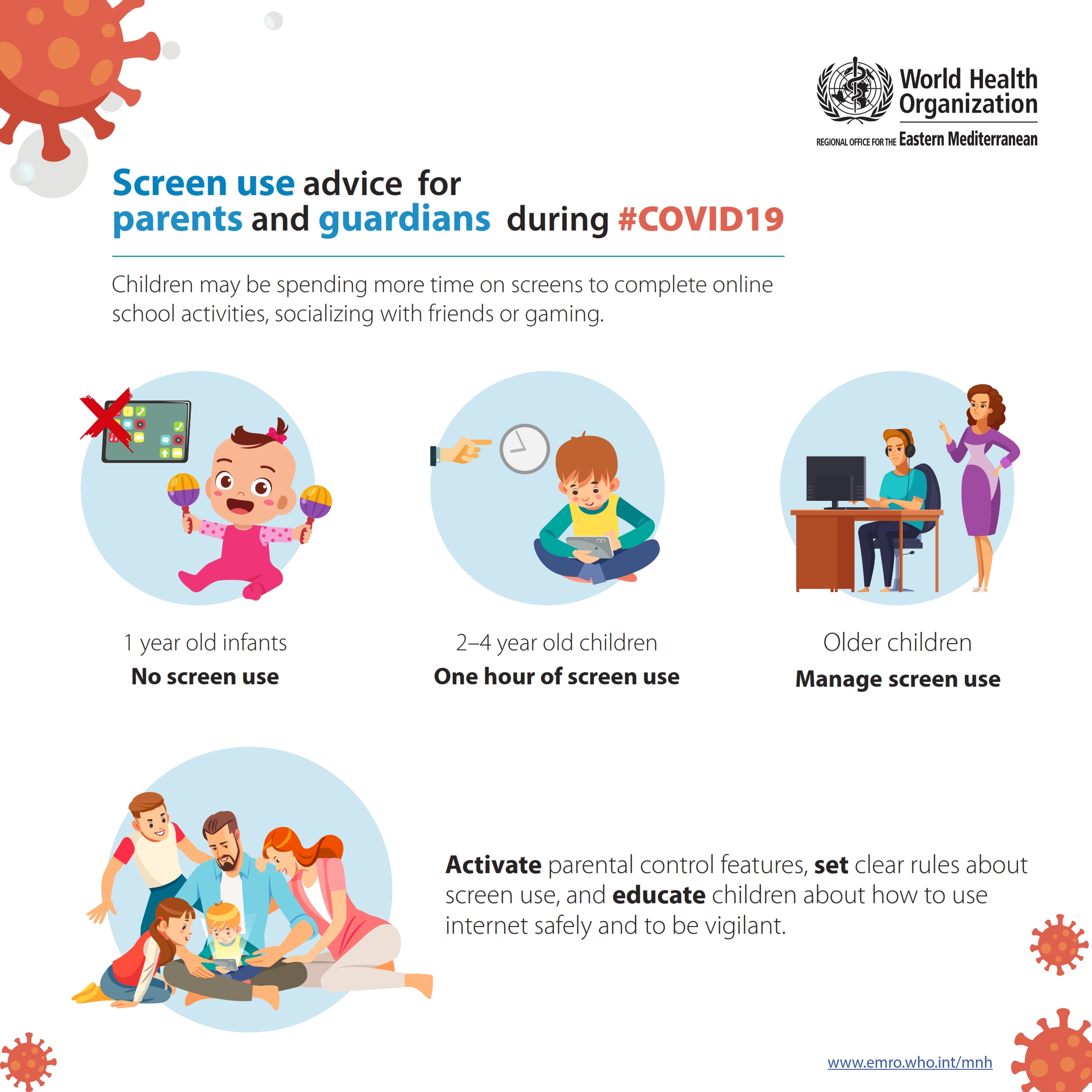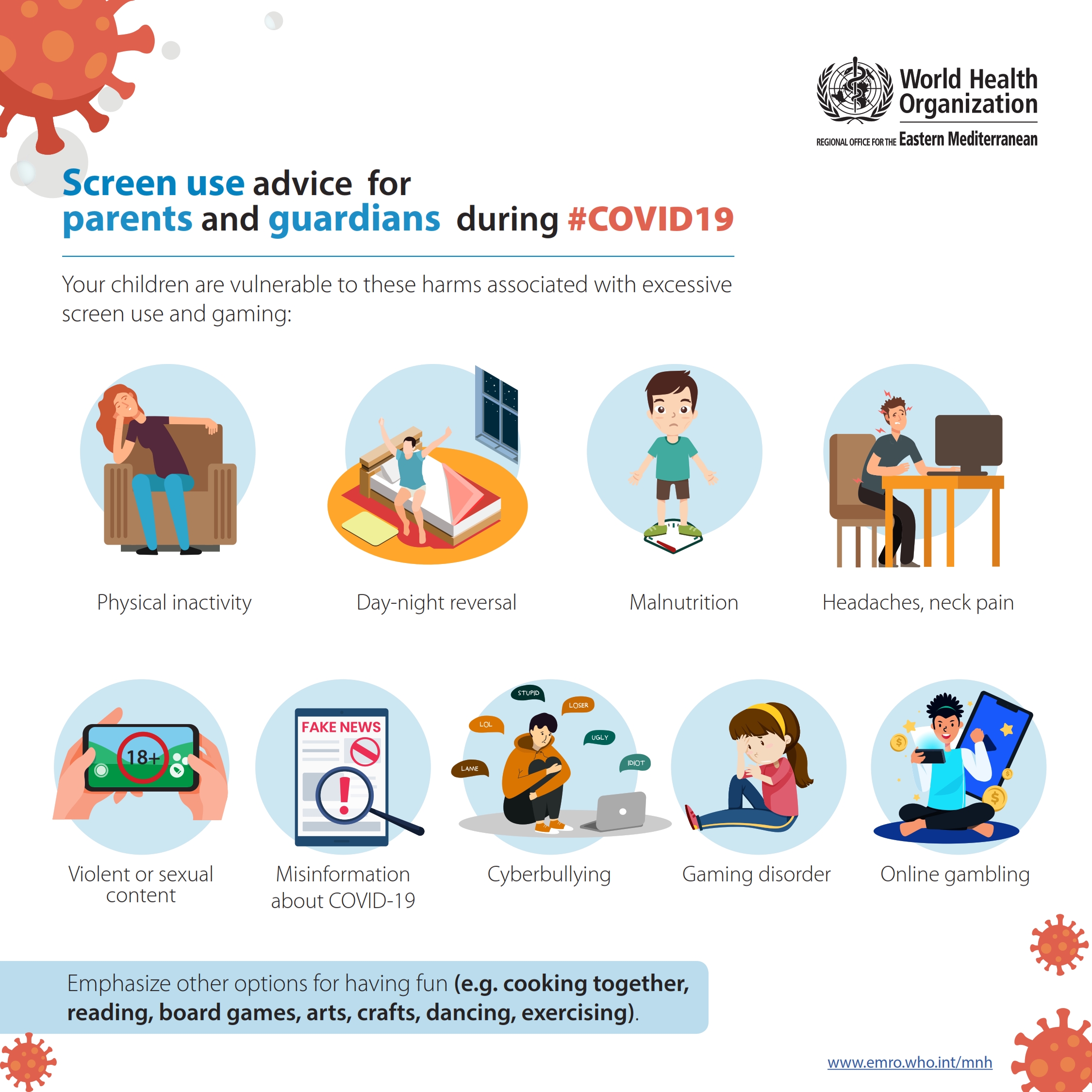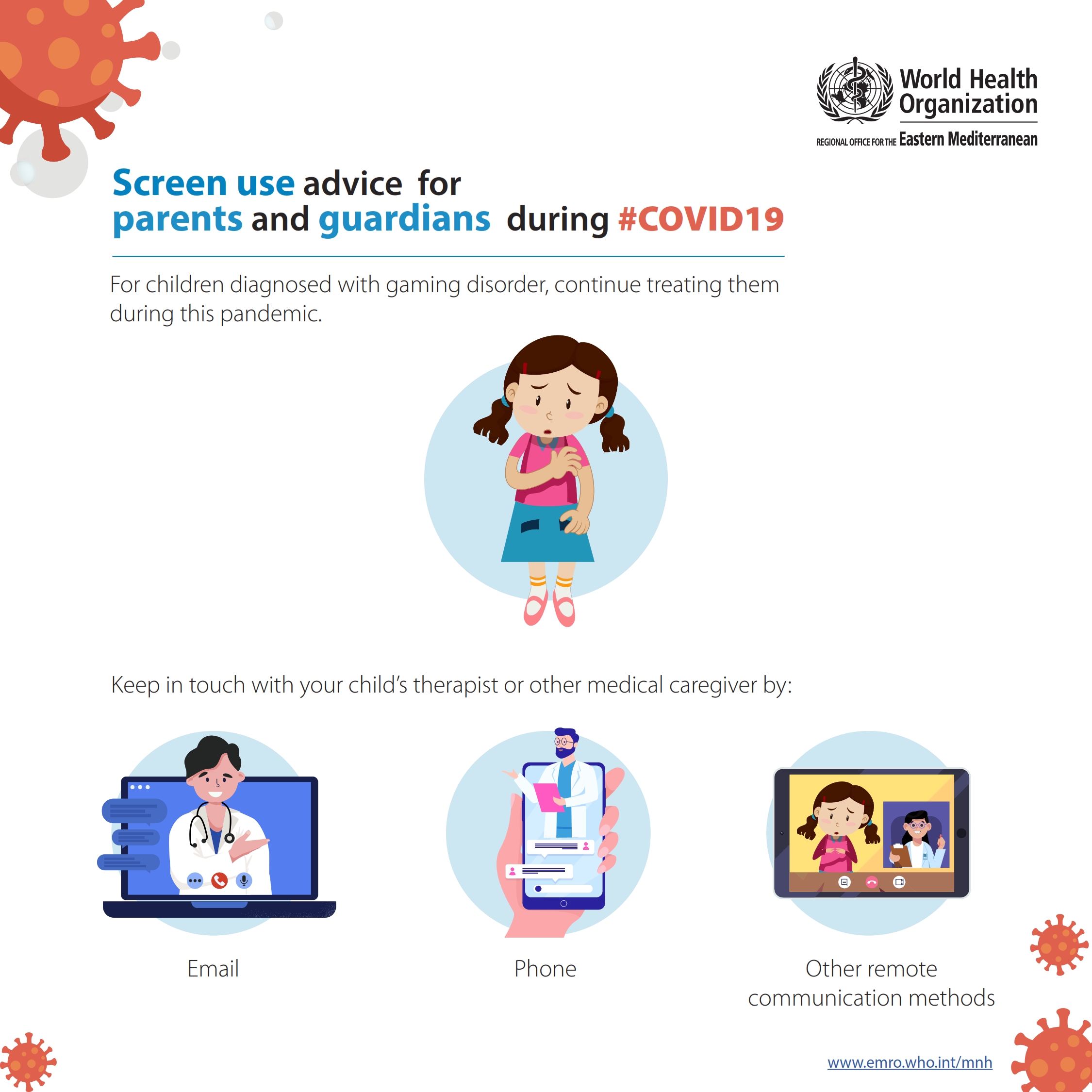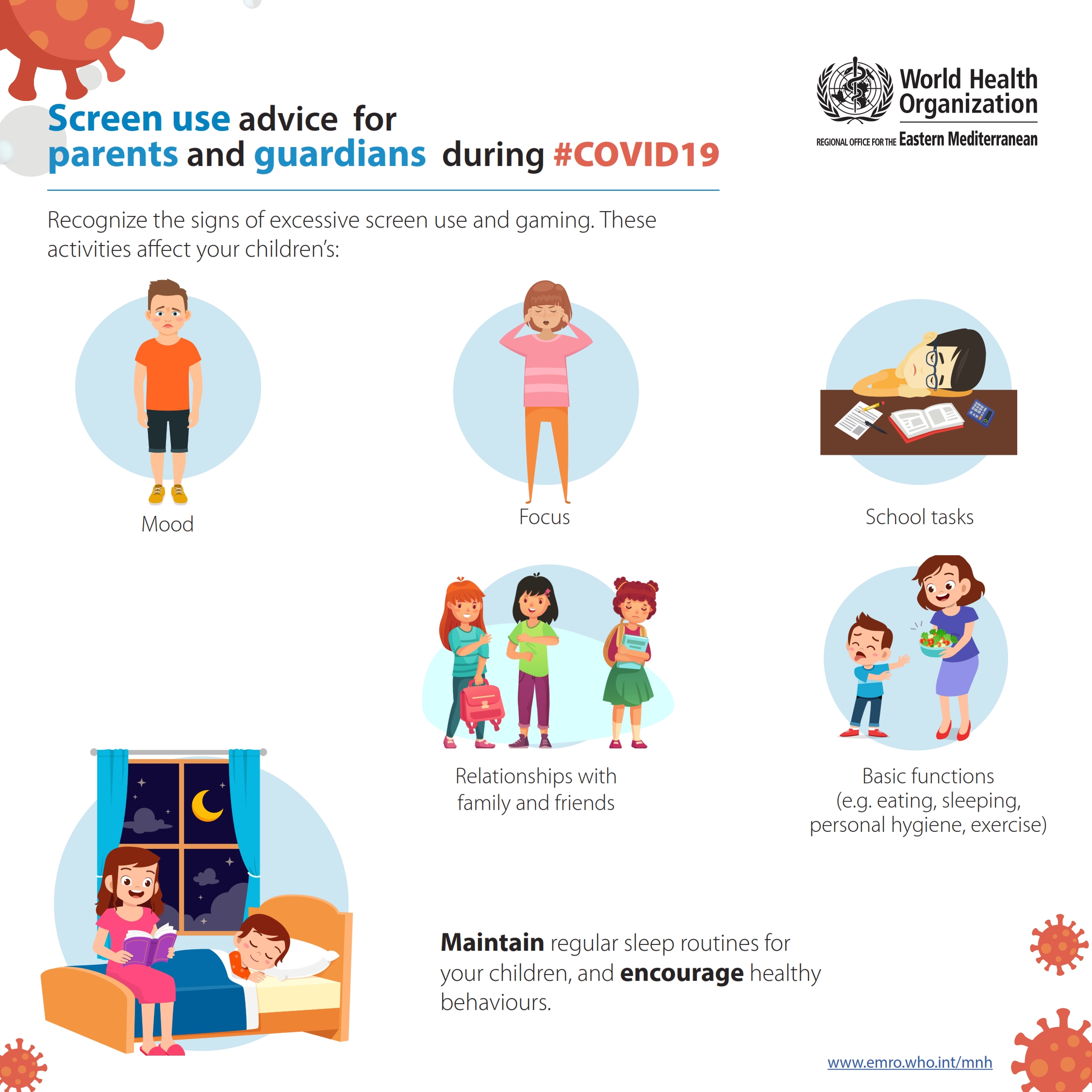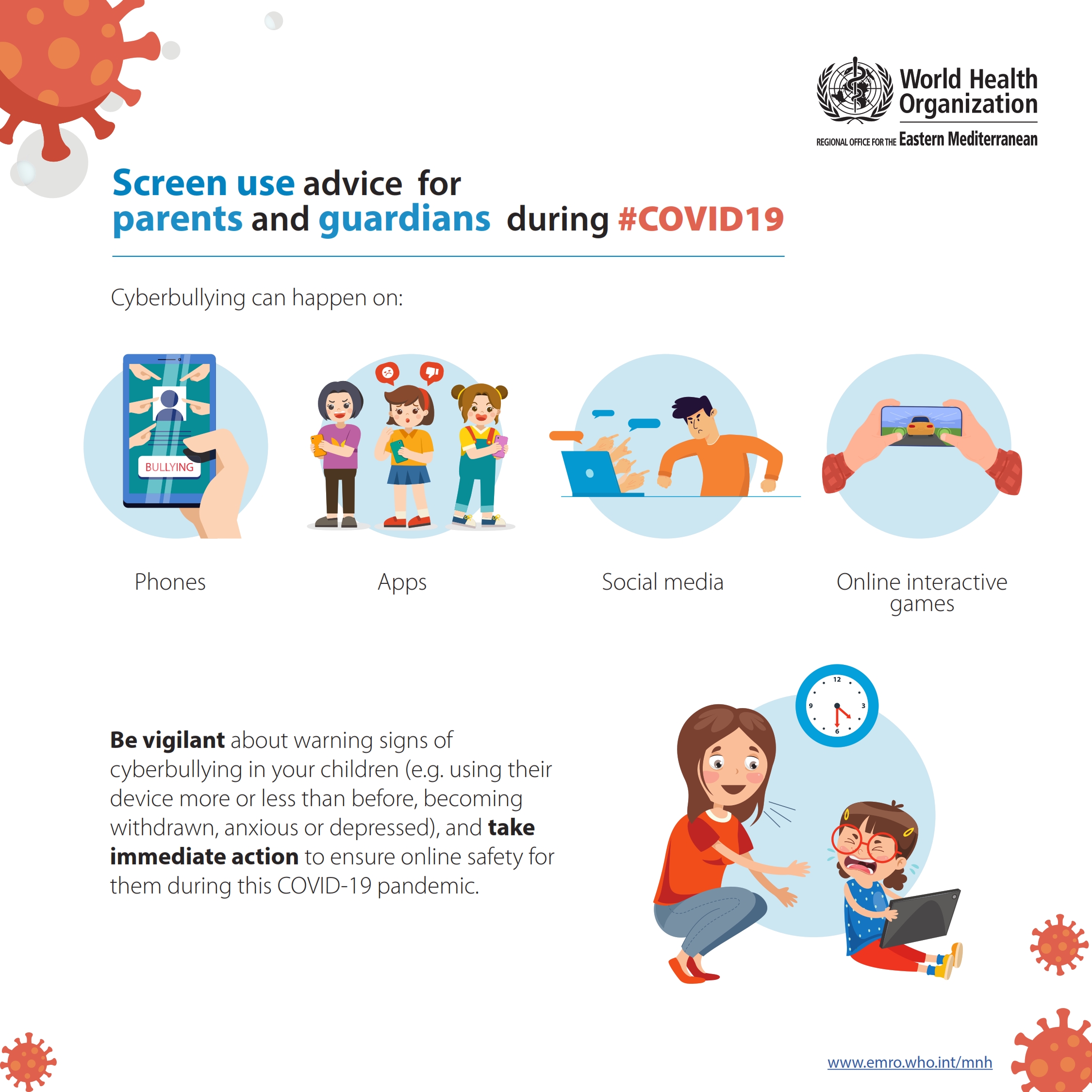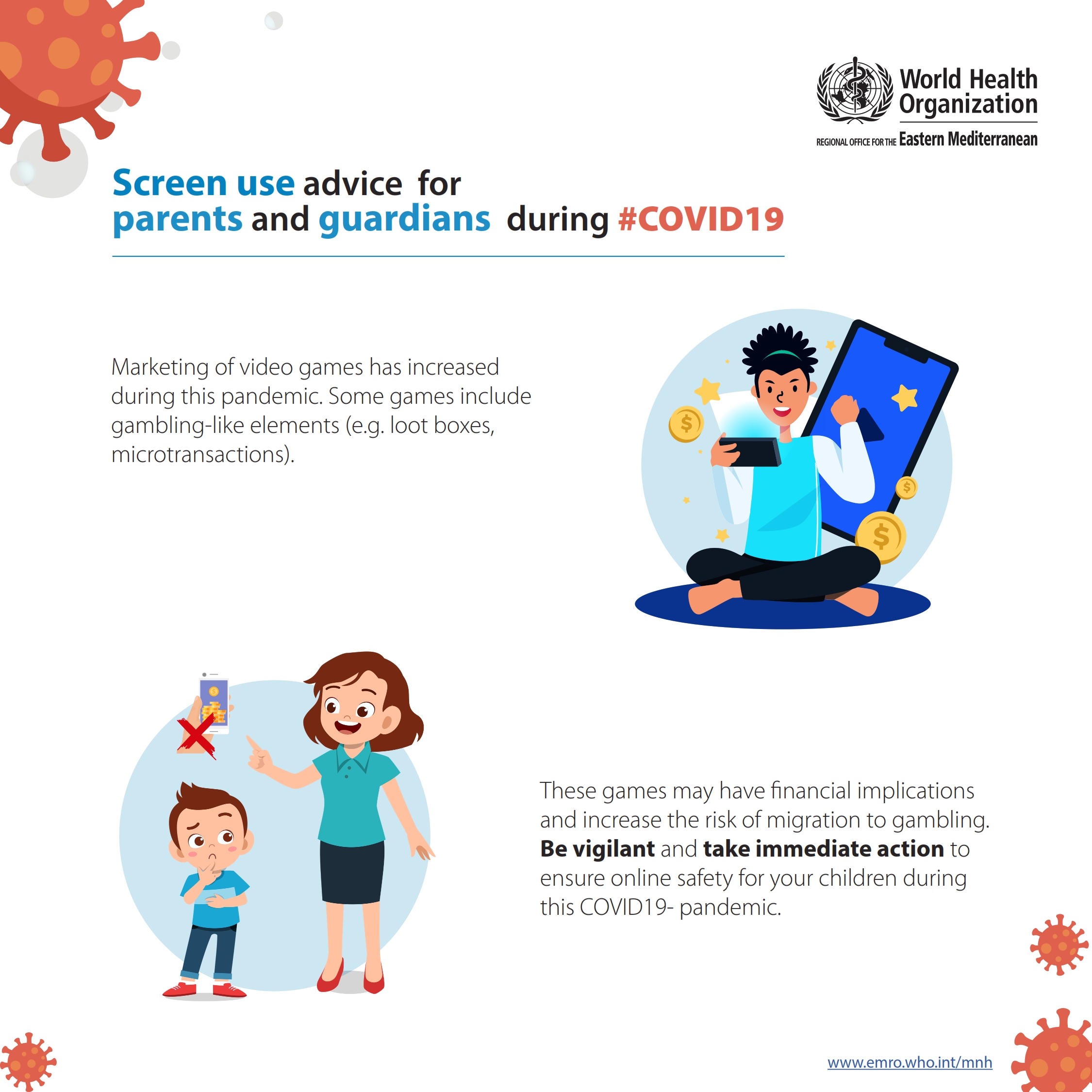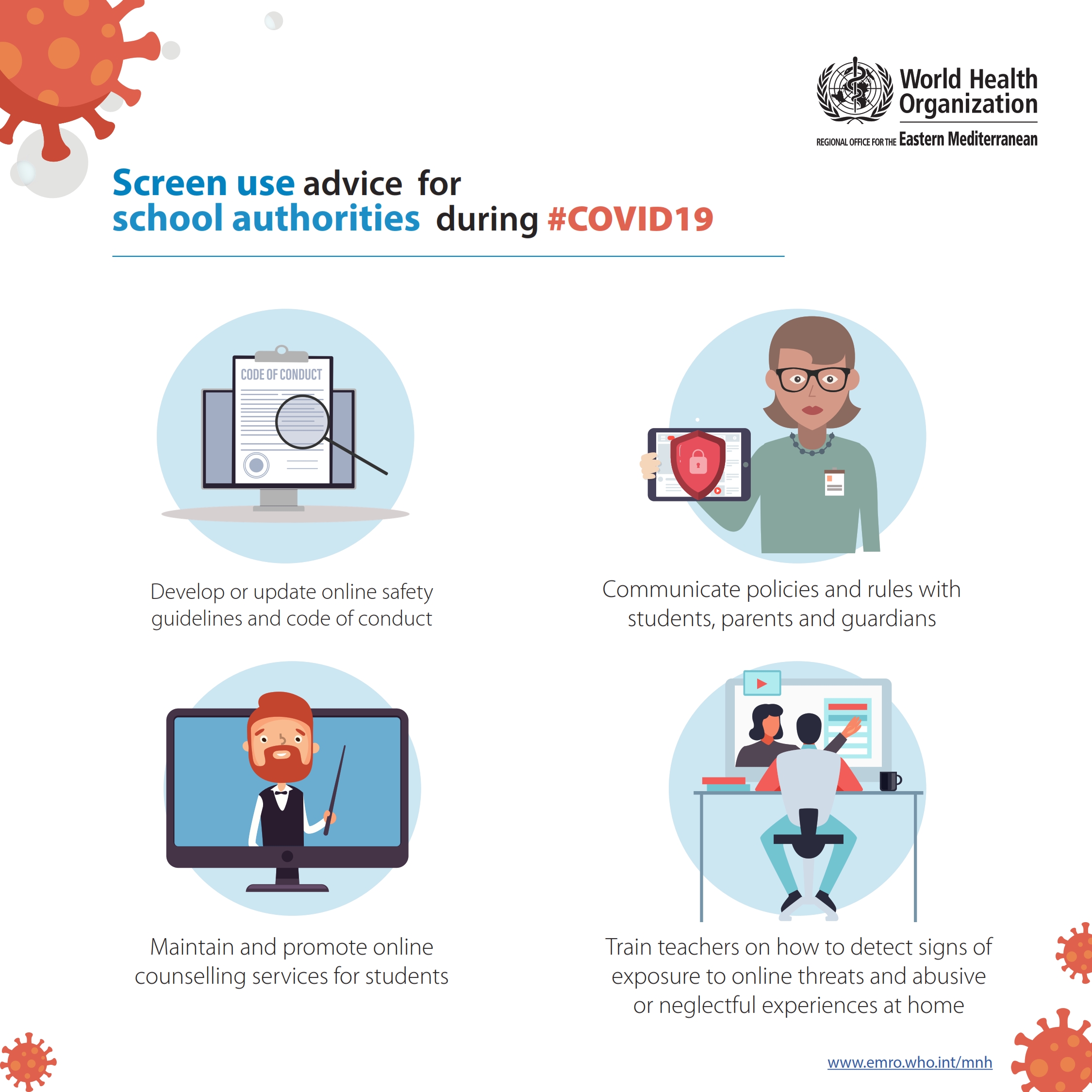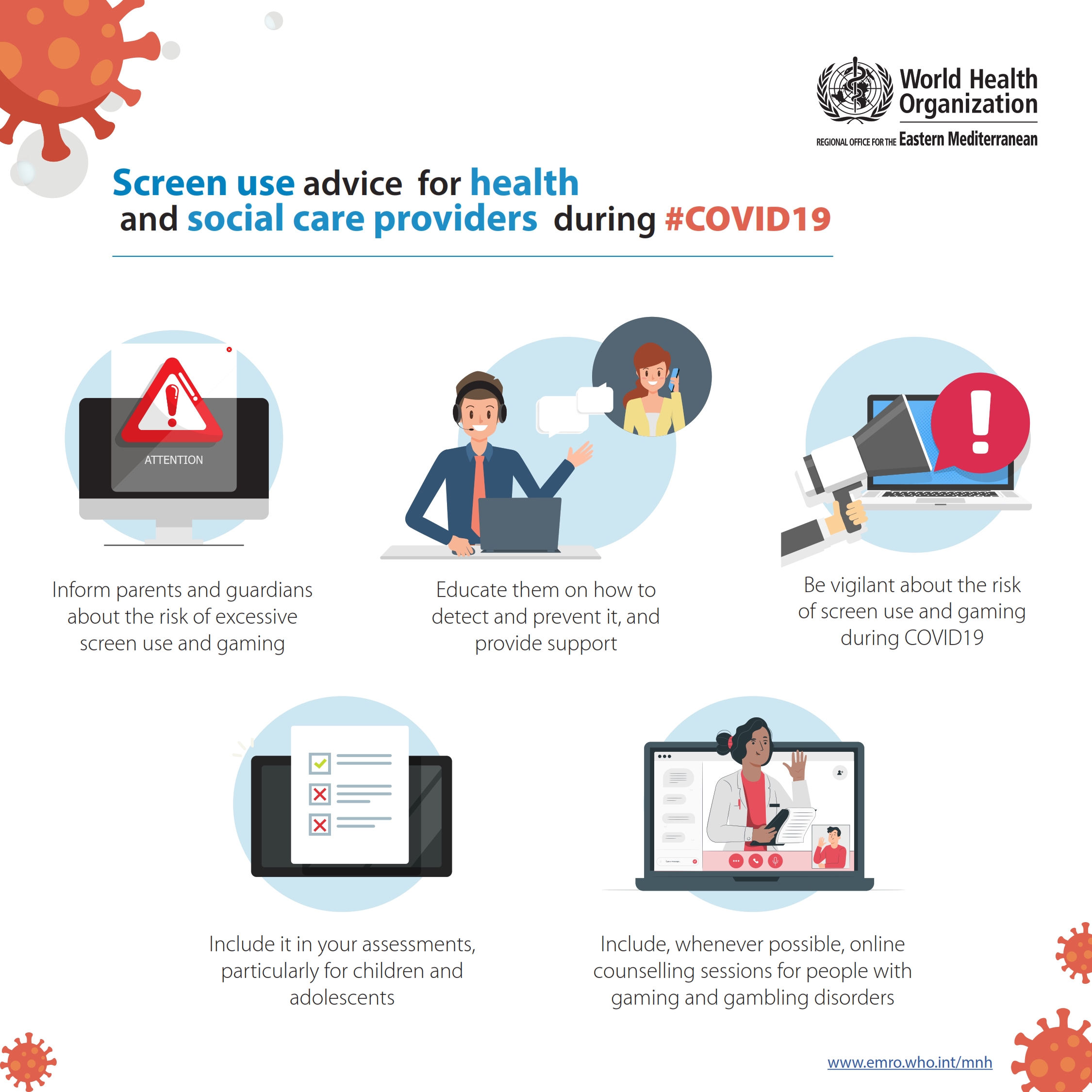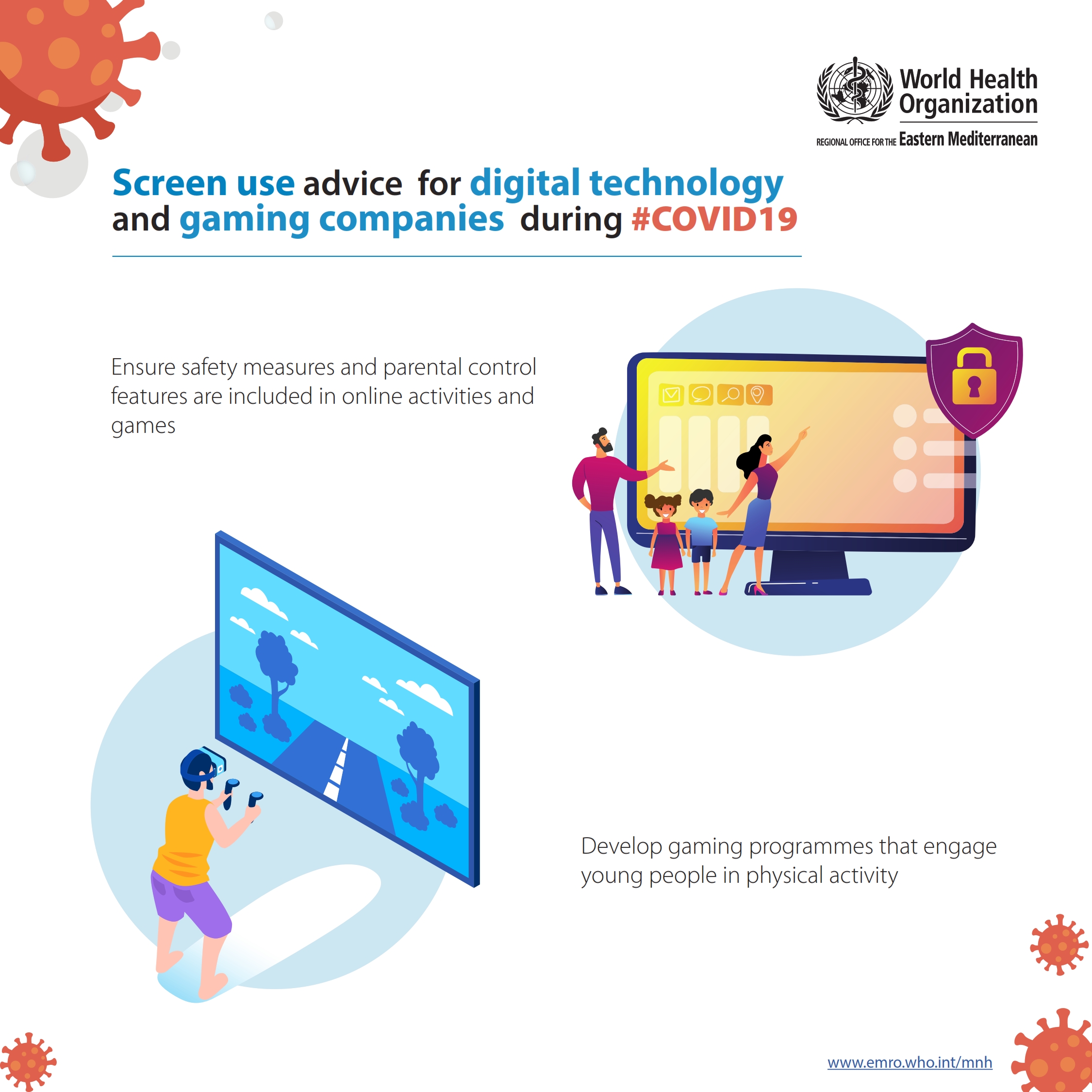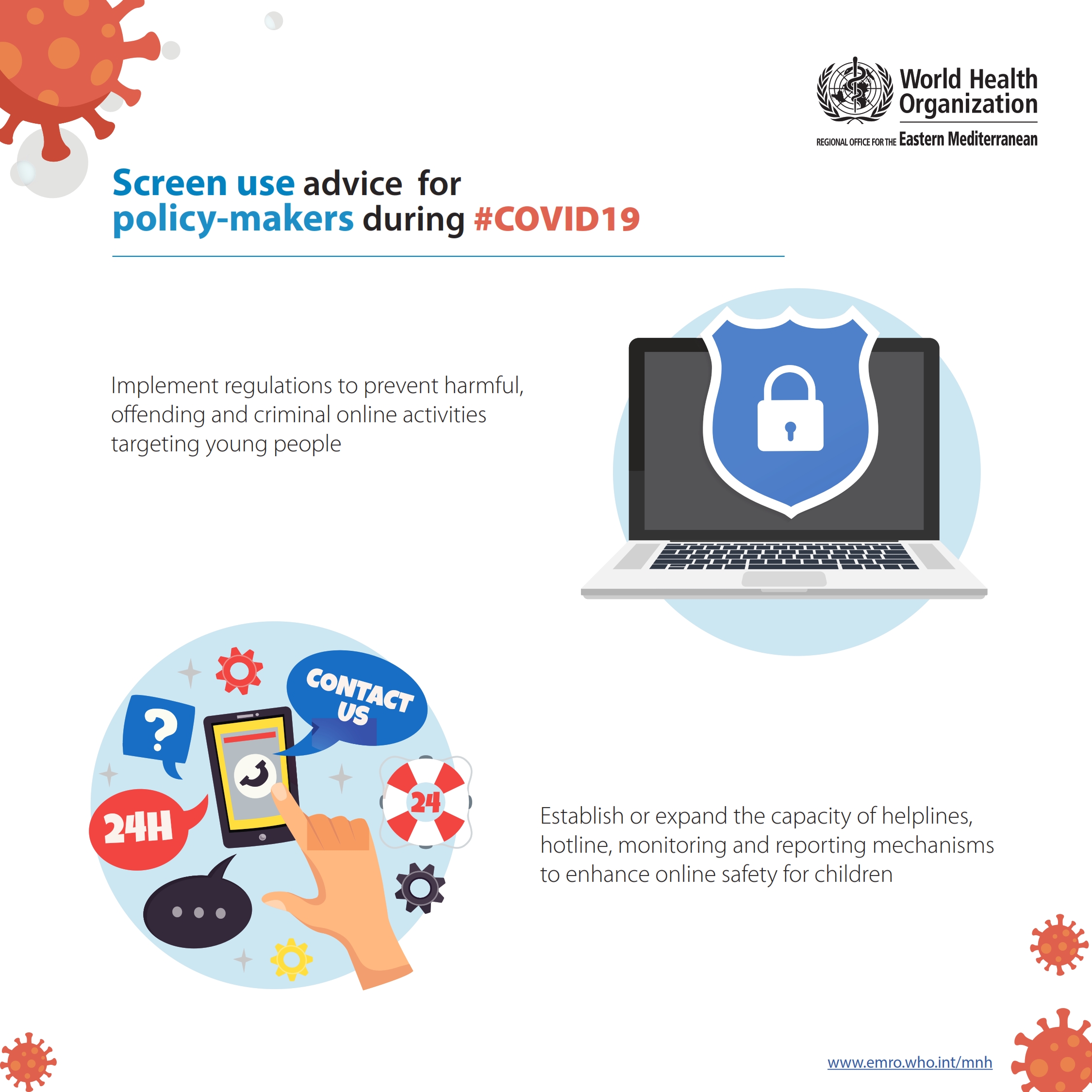
The COVID-19 outbreak has posed significant challenges across the globe. Hundreds of millions of people worldwide are required to stay at home to protect themselves and prevent the spread of the disease, including young people.
As of 25 April 2020, around 1.5 billion children have been out of school and as a result, many of them may be spending more time on screens to complete online activities as part of homeschooling, socializing with peers or playing video games given that outdoor activities may be restricted due to lockdowns. Young people can be particularly vulnerable to the harms associated with excessive screen time or gaming including unhealthy sedentary lifestyles, exposure to harmful content (violent or sexual), misinformation about COVID-19, cyberbullying, development of gaming disorder, or engagement in online gambling.
Different target groups have a responsibility to take urgent action to ensure online safety for young people during the COVID-19 pandemic. These target groups include: parents and guardians, school authorities, health and social care providers, digital technology and gaming companies, and policy-makers.
Health risks of excessive screen time or gaming
Excessive screen time or gaming is associated with these health risks.
It replaces healthy behaviours and habits such as physical activity and sleep, and leads to harmful habits such as reduced sleep or day-night reversal, malnutrition, headaches, neck pain, etc.
It may lead to the development of gaming disorder.
It can encourage migration to gambling as some games have gambling-like elements.
Signs of excessive screen time or gaming
It is important to recognize the signs of excessive screen time or gaming, and take immediate action. Here are some of the most common signs of excessive screen time or gaming.
It affects a person’s ability to focus and complete school tasks.
It negatively impacts a person’s relationships with family members and peers.
It takes priority in a person’s life over the basic functions such as eating, sleeping, personal hygiene and exercise.
It causes significant changes in a person’s mood or ability to control outbursts (e.g. physical aggression) when asked to stop.
Parents and guardians
It can be easy for young people to fall into unhealthy patterns of behaviour such as spending excessive time on screens or video games to cope with this stressful COVID-19 situation or to pass time when in isolation, quarantine or lockdown. WHO advises that sedentary screen time (including playing video games) is:
not recommended for 1-year old infants; and
should be limited to no more than 1 hour per day for children 2–4 years old.
During isolation, quarantine or lockdown, it may be challenging to follow these guidelines for children 1–4 years, and manage excessive screen time or gaming in older age groups as well. Therefore, it is particularly important to:
empower children with knowledge and information about how to use internet safely during the COVID-19 pandemic and beyond.
create a balance between online and offline activities.
set clear rules about screen time and how, when and where children can use the Internet.
communicate the boundaries and rules clearly with children.
install the latest software updates and antivirus programmes on device(s) used by children, set the privacy settings to “high” and activate parental control features especially for younger children.
encourage children to be active, including playing video games that require physical activity, where possible.
remind your children that watching television and doing online activity is one option for passing the time and emphasize other options for having fun such as cooking together, reading, board games, arts and crafts, dancing, and exercising.
explain why limitations around screen time/online activities are being relaxed, that any additional screen time is temporary and normal routines will resume once isolation, quarantine or lockdown ends.
educate children to be vigilant about cyber fraud and how to seek support when facing these issues.
maintain regular sleep routines for children and encourage healthy eating.
Children diagnosed with gaming disorder. If your child has been previously diagnosed with gaming disorder it is important to continue treatment, if possible during this pandemic. If quarantined, isolated or locked down at home, keep in touch with your child’s therapist or other medical caregiver by email, phone or other remote communication methods.
Cyberbullying. Cyberbullying can happen on different digital platforms (phones, apps, social media, online interactive games, etc.). Be vigilant about warning signs of cyberbullying in your children such as using their device more or less than before, or becoming withdrawn, anxious or depressed.
Blurring of lines between gaming and gambling. Parents and guardians should be mindful that the boundaries between gaming and gambling are becoming increasingly blurred.
Increasingly, online games include gambling-like elements (e.g. loot boxes, microtransactions) and vice versa.
Marketing of video games has significantly increased amid the COVID-19 pandemic, some of them with gambling themes.
Games with gambling-like elements may have financial implications and increase the risk of migration to gambling.
School authorities
School authorities should:
develop or review and update online safety guidelines to protect children enrolled in online homeschooling and communicate these guidelines with parents, guardians and caregivers.
communicate online code of conduct with students, including policies and rules about cyberbullying and address it immediately according to these rules.
maintain and promote online counselling services for students.
provide training for teachers about online counselling and how to detect signs of exposure to online threats and abusive or neglectful experiences at home.
Health and social care providers
Health and social care providers should:
disseminate information among families about the risk of excessive screen time or gaming and how to prevent it.
be vigilant about the possibility of excessive screen time or gaming during this period and include them in their assessments, particularly for children and adolescents.
include, whenever possible, online psychological support and counselling sessions for people with gaming and gambling disorders.
inform parents and caregivers about how to detect, respond and if necessary, report harmful online content, and provide them with information about available support.
Digital technology and gaming companies
Digital technology and gaming companies should:
ensure safety measures and parental control features are included in online activities and games.
develop gaming programmes that engage young people in physical activity.
Policy-makers
Policy-makers should:
be aware of the potential increased online risks for young people during the pandemic.
enhance monitoring and implement regulations to prevent harmful, offending and criminal online activities targeting young people.
support the development of educational materials for the public about harms associated with excessive screen time and online activities including gaming and gambling, particularly during the COVID-19 pandemic.
update guidelines on psychosocial support to include an assessment of harms associated with excessive screen time and online activities, including gaming and gambling disorders.
provide training for health and social care workers about the potential impact of COVID-19 on well-being of young people including increased online risks, and how to assess, identify and manage these risks.
engage with digital technology and gaming companies to ensure safety measures and parental control features are included in online activities and games, and when possible support development of gaming programmes that engage young people in physical activity.
establish or expand the capacity of helplines, hotline and reporting mechanisms to enhance online safety for children and provide support for parents and children.
Factsheet and infographics
Social cards
Related links
Sharpening the focus on gaming disorder
References
Coronavirus disease (COVID-19) advice for the public: parenting in the time of COVID-19. Geneva: World Health Organization; 2020.
Coronavirus disease (COVID-19) and Its implications for protecting children online: a technical note from UNICEF and partners. New York: United Nations International Children’s Emergency Fund; 2020.
Guidelines on physical activity, sedentary behaviour and sleep for children under 5 years of age. Geneva: World Health Organization; 2019.
Hurley K. Does your child have internet gaming disorder? PSYCOM: 2020.
Psychosocial and health aspects of substance use and addictive behaviours during COVID-19 outbreak: annex to IASC interim briefing note. Geneva: Inter-Agency Standing Committee; 2020.


